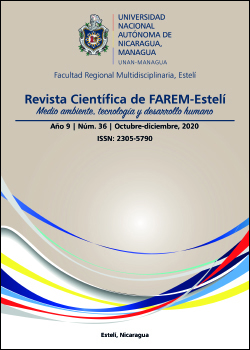Community participation and maternal health in Upper Wangky, from a gender perspective
DOI:
https://doi.org/10.5377/farem.v0i36.10612Keywords:
community participation, maternal health, gender perspectiveAbstract
The article, from the author’s doctoral thesis, analyzes the perception of pregnant and postpartum women in Alto Wangky about the participation of their family, health professionals, and midwives to access health services during pregnancy, labor, and postpartum, expanding the map of facilitators or obstructors and integrating community organization and participation to the local maternal health management model. The gender focus explores dimensions not analyzed in classic positivist research, generating proposals for action and measures to influence policies on the subject. Type of qualitative research. A case study was carried out, with an intentional, flexible, and convenient sample. The main results show that the majority are women between 20 and 35 years of age, who are literate, unemployed, or work with job insecurity. They have access to reproductive services, but their access is difficult due to geographical conditions, or their husbands do not allow them to use them. They have prenatal services and use them; the labor is attended to more than 1 day’s journey by river. It is concluded that pregnant and postpartum women, with the support of their husband, family, and midwives, have access to available maternal health services despite the socio-economic and access difficulties in which they live.
Downloads
580
HTML (Español (España)) 265
Published
How to Cite
Issue
Section
License
© Revista Científica de FAREM-Estelí

